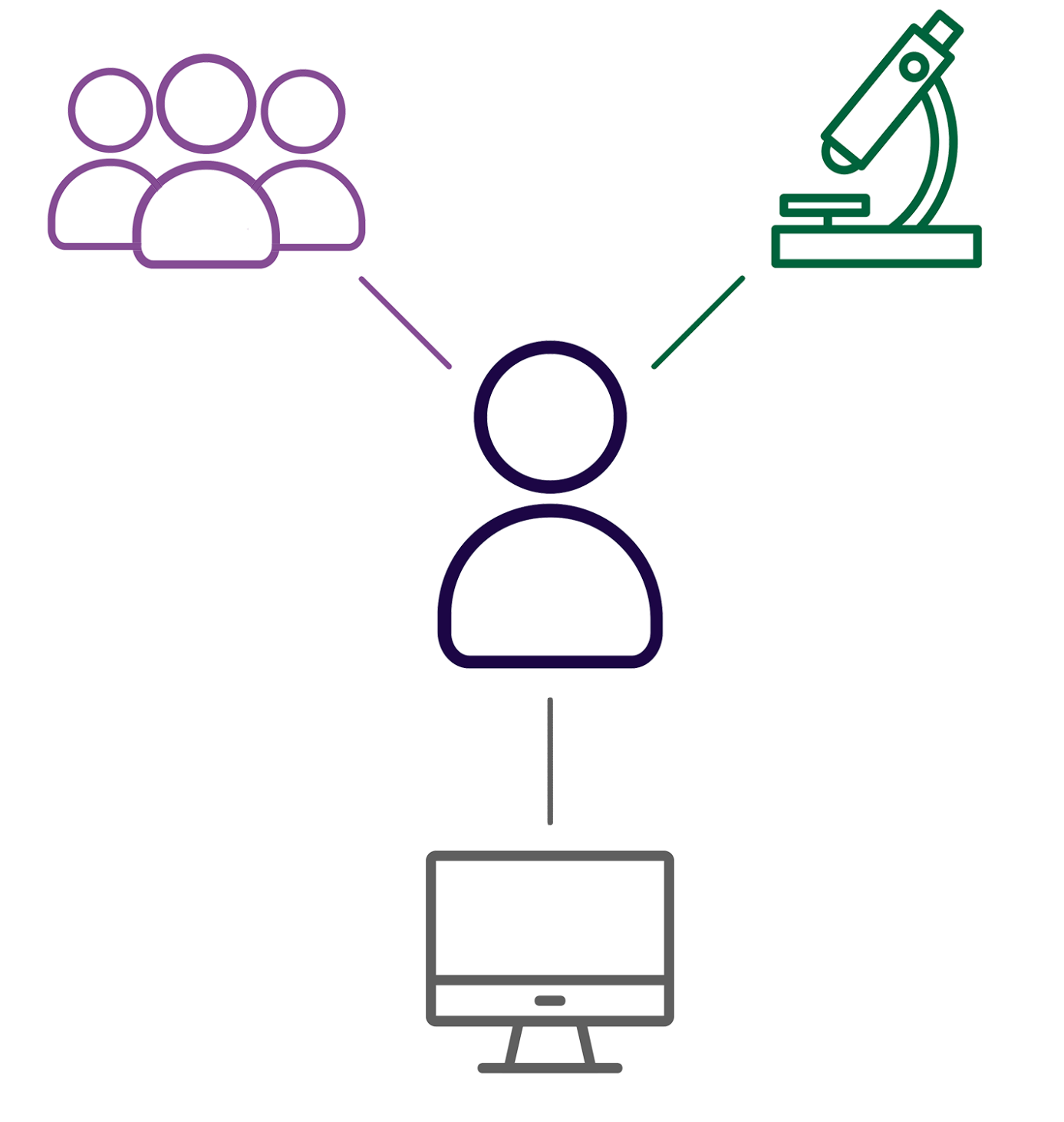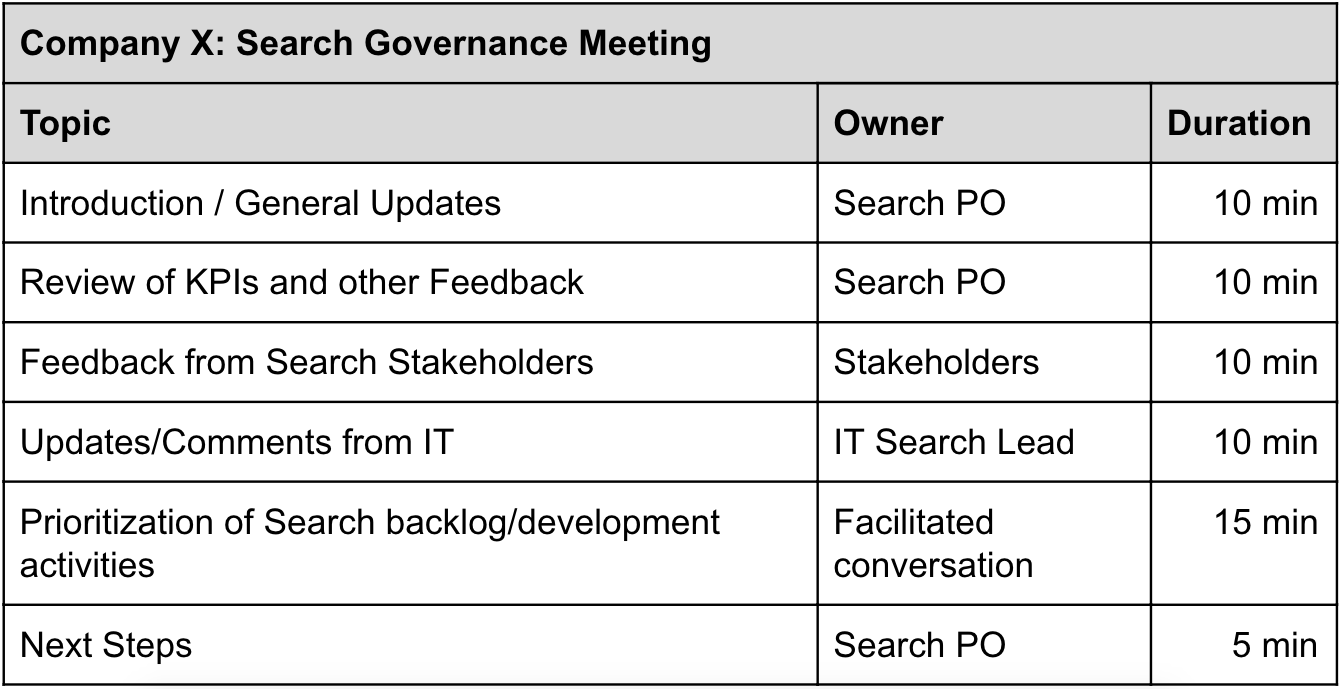Successful enterprise search projects begin when the new search tool is launched. Search cannot remain static because an organization’s needs, as well as its content, change over time. Without a business leader, search initiatives are unable to adapt to these changes. Therefore, we encourage all of our clients to identify a business person as the Search Product Owner or the search champion. This individual becomes the leader for all search-related initiatives.
Collect Feedback on Search
Search is one of the most unpredictable applications in any organization. Searchers can search for nearly anything and content is added or removed constantly. It is critical to gather feedback about how search is working and what people are searching for. The Search PO should gather feedback through four mechanisms:
- Analytics from the web reports,
- Annual or semi-annual surveys,
- Search problem tickets, and
- Anecdotal stories (both good and bad).
The best way to gather quantitative measures about how search is performing is through web analytics. Reports that outline the top search terms, most frequently selected facets, and average depth of search result (i.e. the average number of the search result selected) can provide great insight as to how search is performing and what people are seeking. These reports typically drive the change and prove the value of search over time. 
Surveys provide qualitative measures about how search is performing. A semi-regular survey not only provides a way to gain insight into how people view search; it also tells your searchers that you are listening to them. The Search PO should design and launch short surveys around search no less than once per year.
Search problems can often be spotted in the trouble tickets submitted to IT. A good Search PO will have access to these tickets and proactively look for systemic issues that need immediate attention, such as response time or corrupt indexes. It is crucial that these issues be addressed immediately.
Finally, a good Search PO will collect success stories, as well as frustrations, in regular conversations with searchers. These stories are often the most powerful way to request additional funds or prioritize search over other initiatives.
Run the Governance Meetings
Search, like any other pervasive enterprise initiative, requires regular governance meetings to ensure that it is adapting to changing user requirements. The Search PO needs to be responsible for organizing, planning, and facilitating these meetings. We typically recommend that search governance committees meet quarterly. The Search PO needs to set up the meeting times far enough in advance so that all of the key stakeholders can attend.
Prior to the actual meeting, the Search PO should prepare reports, share anecdotal stories, and develop an agenda for the meeting. A sample meeting agenda is shown below.
After the meeting, the Search PO should share meeting minutes and make sure that all action items from the meeting are properly addressed.
Manage/Prioritize Search Development
There are a number of activities that need to be prioritized in search such as:
- Resolution of bugs/issues,
- Relevance tuning,
- Indexing of new repositories,
- New features/enhancements, and
- Creation of new search result types.
The search development team needs guidance from the business, specifically their Search PO, to make sure they are prioritizing the most important development activities.
In addition to prioritizing development tasks, the Search PO needs to be the primary point of contact answering questions and providing design approaches. Many of our Search POs meet with IT daily during the heavy development times to make sure that development has someone who can answer their questions. An involved Search PO will allow the development team to have a greater impact in a shorter amount of time.
Communicate Search Changes
Out of sight, out of mind. Search, like any other application, needs to be evangelized. A strong Search PO will regularly communicate the following:
- New features,
- Success stories,
- How-to’s, and
- Bug fixes.
The Search PO is typically the face of search for the enterprise. It is critical that searchers hear about the new features, successes, and bug fixes that happen so that people know and respect the hard work that is going on behind the scenes that helps make search relevant. Frequent communication reminds users of the value of search so that they use it more often. It is also the best way to ensure the search initiative gets the most possible funding with each new budget cycle.
Conclusion
An effective enterprise search needs continuous updates in order to adapt to an evolving organization. This cannot happen without a champion for search who is continuously leading and communicating change. The Search PO is the champion who makes sure that search meets the needs of the users and the organization and receives the funding that is necessary to make search successful.
Need help with your enterprise search implementation? Let EK’s consultants build a search that delights your users and establishes proper governance, ensuring search improves over time.


